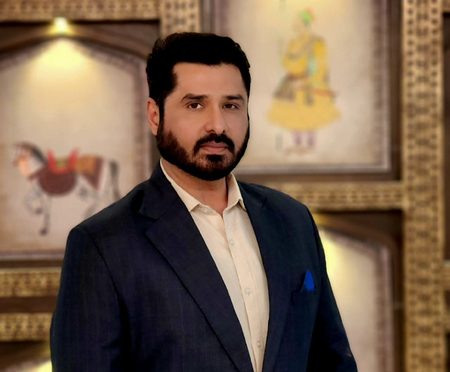
Mumbai, July 28 (IANS) Actor Pankit Thakker, who is currently seen in the TV show ‘Saru,’ has talked about the government’s decision to ban ALTT, ULLU, Desiflix and 23 other OTT apps for soft porn content.
He said, “This is a Wake-up Call for responsibility. The ban, driven by concerns over the ‘indecent representation of women’ and violations of laws like the Indecent Representation of Women (Prohibition) Act, 1986, is a stark reminder that the booming digital space can’t operate in a vacuum.”
Pankit, who made his OTT debut with the film “Moh Maaya,” was directed by Ankush Bhatt.
“While the creative freedom offered by OTT platforms is undeniable, a line must be drawn, particularly when it comes to the impact on vulnerable audiences like children.”
“Since lock down, the OTT landscape has been a wild west of content, with some platforms prioritizing sensationalism over substance and many of these banned apps “hardly had any storyline, theme, or message in a social context,” he added.
“This reliance on “shock value” and the objectification of women not only degrades the art form but sends a dangerous message to society”, said Pankit.
Professionally, Pankit has gained widespread recognition for his roles in popular television series including “Kabhii Sautan Kabhii Sahelii,” “Dill Mill Gayye,” “Barsatein – Mausam Pyaar Ka,” “Bahu Hamari Rajni Kant,” “Aapki Nazron Ne Samjha,” and “Bohot Pyaar Karte Hai,” among several others.
He shared: “Storytelling holds a powerful mirror to society. It’s our responsibility to use that mirror not to exploit or debase, but to reflect, question, and elevate.”
“The pursuit of viewership should never overshadow the duty to create meaningful and responsible content that respects our cultural ethos and values. This ban should serve as a wake-up call, urging us to engage in ethical content creation and prioritize the impact our work has on the wider audience.”
The actor said the ban is seen by some as a necessary step.
He added: “The challenge lies in finding a balance between safeguarding societal values and fostering artistic expression, a delicate dance that requires careful consideration. The government’s action underscores the need for a collaborative approach. A robust self-regulatory model, clear guidelines, and transparent grievance redressal mechanisms are crucial for the future of Indian digital media.”
“Instead of resorting to blanket bans, targeting specific content that violates legal and ethical boundaries, while preserving a space for diverse and thought-provoking storytelling, could be a more sustainable path.The Indian OTT market is a global force, poised for incredible growth.”
He said that the future depends on innovation and creativity, balanced with responsibility and respect for cultural heritage.
“The decision reminds the industry that the future of Indian entertainment hinges on a commitment to both creativity and consciousness.”
On July 25, in a bid to crack down on unlawful and obscene content, the government directed Internet Service Providers (ISPs) to disable public access to 25 OTT platforms, including big and popular names like Ullu, ALTT, and Desiflix.
A notification issued by the Ministry of Information and Broadcasting (MIB) emphasised that the intermediaries are responsible for removing or disabling access to unlawful information under the Information Technology Act, 2000, and the Information Technology (Intermediary Guidelines and Digital Media Ethics Code) Rules, 2021.
It said the move is aimed at curbing the dissemination of content that is deemed sexually explicit and violative of Indian legal and cultural standards.
The banned apps include Big Shots App, Boomex, Navarasa Lite, Gulab App, Kangan App, Bull App, Jalva App, Wow Entertainment, Look Entertainment, Hitprime, Feneo, ShowX, Sol Talkies, Adda TV, HotX VIP, Hulchul App, MoodX, NeonX VIP, Fugi, Mojflix, Triflicks.
–IANS
dc/



